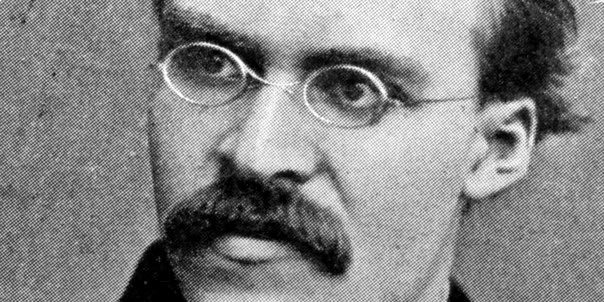by Matthew Sussman
This essay was peer-reviewed by the editorial board of b2o: an online journal.
In “On the Uses and Disadvantages of History for Life,” the second of his Untimely Meditations, Nietzsche argues that we should use history for the sake of “life,” a concept that is obscure but central to his argument.[1] The idea of life is obscure because rather than give it specific positive content—suggested vaguely by words such as “action” (59) and “health” (63)—Nietzsche defines it largely through negation, emphasizing what corrupts or inhibits it. But despite this ambiguity life remains central because it provides the essay’s ultimate moral principle, the summum bonum against which the value of all other things must be measured. If something furthers the interests of life, then it is good, and conversely, that which gets in the way of life must be eliminated. This means that for Nietzsche, methodological questions in the study of history are ultimately moral ones, and disciplinary practices need to be evaluated pragmatically, insofar as they promote these moral ends.
We can see an example of this approach in the way Nietzsche attacks the idea of historical objectivity (88-95). For many of his contemporaries, objectivity was appealing precisely because it called for historical data to be treated in a morally neutral way, unaffected by the subjective prejudices of the historian. But, according to Nietzsche, this denial of moral interest itself expresses a norm of “justice” (88) that prohibits the historian from distinguishing between the meaningful and the trivial. Hence, a certain amount of injustice to the historical record is required if historians are to avoid the pitfalls of a bland and morally deficient antiquarianism that reduces every past event to a meaningless expression of flux. As in other works, Nietzsche calls for the revaluation of values not as an attack on the idea of value per se but rather to force us to ask what our ultimate values are and whether our methods serve them.
There, I think, lies the lesson of Nietzsche’s essay for contemporary literary criticism. In scientific endeavors, objectivity will always be an epistemic virtue because the basic purpose of such disciplines is to distinguish opinion from fact. What we do with the facts is a matter of opinion, but the need for facts remains. However, humanistic disciplines such as literary studies are not quite so obligated. For one, the status of a fact in our discipline is much more ontologically doubtful and the utility of facts once we know them is also limited. For example, the kind of historical knowledge that Nietzsche alludes to may enrich our reading of a text, but that sort of enrichment is just one interpretive possibility among many, a possibility whose hegemony Nietzsche helps us question. Furthermore, as Jesse Rosenthal suggests in his contribution to this symposium, the kind of historical record or tradition produced by literary critics—and in this way we resemble philosophers—is for the most part an invented one, determined less by material circumstances than by atemporal conventions of intersubjective agreement. These conventions may have a basis in historical reality, but their ultimate goal is to float free from that reality, allowing us to involve ourselves and our subjects in “conversations” that are consciously, often quite deliberately, unrestricted by the circumstances of time or place.
The title of Nietzsche’s essay advances this view. The meditation is untimely not simply because it goes against the grain of its period, but because it does so by reviving a Hellenic moral framework over two thousand years old whose bearing on the present is a matter of opinion: “What I mean by this—and it is all I mean—is that the thought of being epigones, which can often be a painful thought, is also capable of evoking great effects and grand hopes…provided we regard ourselves as the heirs and successors of the astonishing powers of antiquity and see in this our honour and our spur” (103). Unlike material history, which is successful only insofar as it conforms to reality, aesthetic or intellectual history seeks to create a parallel reality whose greatest virtue may be its very freedom from excessive facticity. In this light, it is helpful to remember that one of Nietzsche’s greatest contributions to culture—his distinction in The Birth of Tragedy between the spirits of Apollo and Dionysus—was criticized when it first appeared for lacking a credible basis in the texts and culture from which Nietzsche purported to draw it. A more “objective” nineteenth-century historian might never have had Nietzsche’s insight—or, as we may more accurately say, have invented his compelling idea.
Of course, there are many risks associated with an outright denial of historicist values, and Nietzsche carefully argues that knowledge of the historical origins of our values is imperative if we are to assume the superior perspective that is necessary for intellectual and artistic freedom (102-3). However, this concession still suggests that the preeminent value in knowing our history is the subsequent ability to set it aside—as long as we remain creative enough to substitute some other criterion of value in its place, and bold enough to convince others of its merit.
[1] Friedrich Nietzsche, Untimely Meditations, ed. Daniel Breazeale, trans. R.J. Hollingdale (Cambridge: Cambridge UP, 2007). This edition is hereafter cited parenthetically.
References
Nietzsche, Friedrich. Untimely Meditations. Edited by Daniel Breazeale. Translated by R.J. Hollingdale. Cambridge: Cambridge UP, 2007.
CONTRIBUTOR’S NOTE
Matthew Sussman is lecturer in English at the University of Sydney, Australia. His articles have appeared in Novel: A Forum on Fiction, Studies in English Literature, Victorian Studies, and Arizona Quarterly.

Leave a Reply